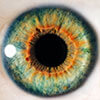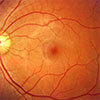Over the last year, I have had an increasing number of glaucoma patients inquiring about dietary changes to reduce the risk of progression. At first, I thought, “That’s a good question,” and continued with the day. But as more and more patients are showing an interest in supplementing medical therapy through modifications in diet, I thought it important to find an answer.
Currently there is little clinical evidence to support that changes in diet can reduce the risk of glaucoma progression. It is extremely difficult to study the effects of diet on glaucoma as individuals absorb and use nutrients in different ways and absorption of certain foods can be affected by other foods in the diet. Most of the research regarding glaucoma and diet is focused on antioxidants, substances that inhibit oxidation. Free radicals are a byproduct of oxidation. They are produced during normal cellular function and in higher levels under oxidative stress or environmental toxins. Research has discovered that, compared to controls, glaucoma patients have an increase in free radicals. Free radicals interact with light and cause damage to retinal ganglion cells. Changes in diet focused on antioxidants can reduce the presence of free radicals. These include diets high in fruits, vegetables, nuts, seeds, spices, and herbs. Coffee and teas also contain significant amounts of antioxidants. Some researchers also suggest decreasing the intake of carbohydrates. Carbohydrates can modify proteins resulting in advanced glycation end products which induce oxidation and free radical production.
Another dietary consideration frequently studied is the ratio of omega-3 to omega-6 fats. Dietary omega-3 fats produce arachidonic acid, a precursor of prostaglandin F2-alpha. Prostaglandin F2-alpha is a well-known ocular hypotensive similar to frequently prescribed prostaglandin analogs. Most studies agree that a lower omega-3 to omega-6 ratio can reduce the risk of glaucoma. The Mediterranean diet, high in antioxidants and omega-3s, contains an omega-3:omega-6 ratio of 1:2.60. The diet consists of olive oil, legumes, unrefined cereals, fruits, vegetables, fish, dairy, and wine.

More research is yet to be done in this field, but at least we can provide some insight on what things may be beneficial to our glaucoma patients. It is important to explain to patients that these suggestions are not clinically proven to reduce the risk of glaucoma progression and that medical therapy is currently the only clinically proven way to treat glaucoma.

Author: Stephanie Stamoolis, OD
Sequim Clinic









